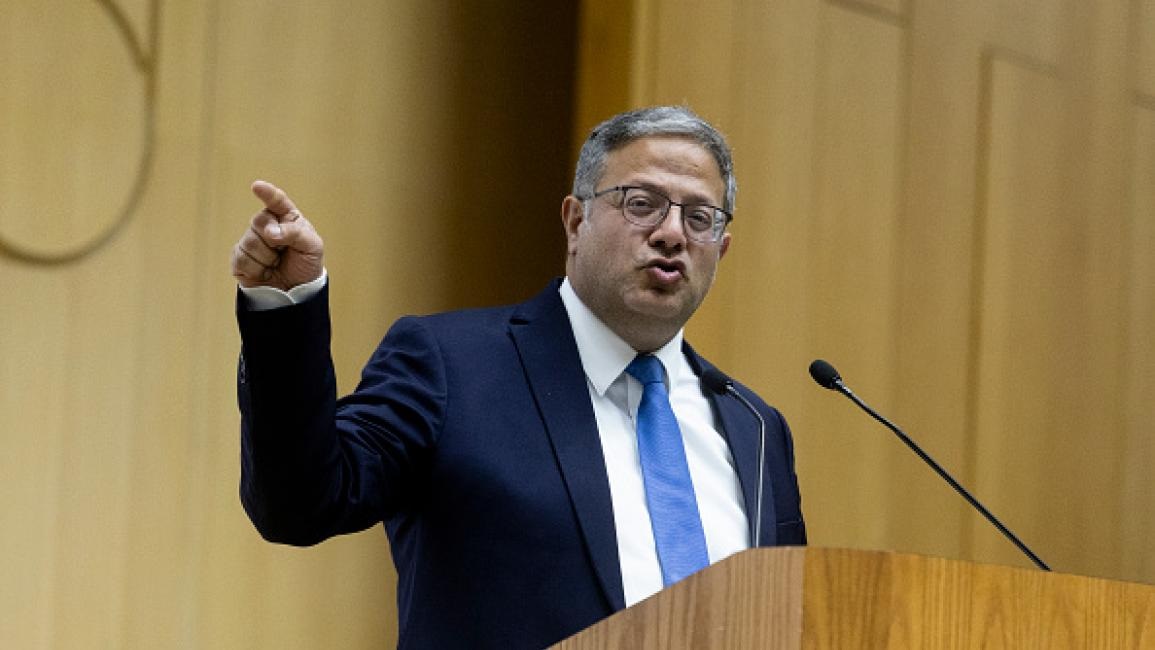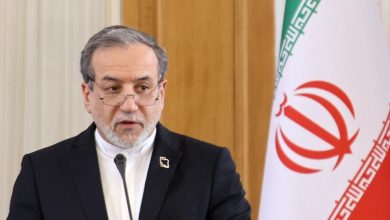Israeli Minister Ben Gvir Proposes Bill to Revoke Oslo Accords and Other Peace Agreements
Ben Gvir submits a bill to annul the Oslo Accords, Hebron Protocol, and Wye River Memorandum, aiming to reclaim transferred lands.

Watan-Resigned Israeli National Security Minister Itamar Ben Gvir announced on Sunday that he has submitted a bill to the Knesset (parliament) calling for the cancellation of the Oslo Accords, the Hebron Protocol, and the Wye River Memorandum—agreements previously signed between Israeli governments and the Palestinian side.
In a post on his X (formerly Twitter) account, Ben Gvir wrote:”We are correcting an injustice that has lasted for many years. Together with my colleagues in the Otzma Yehudit (Jewish Power) party, I have submitted a bill to revoke the Oslo Accords, the Hebron Agreement, and the Wye River Agreement.”
He added:”According to the bill, these agreements will be completely annulled, and Israel will restore the situation to what it was before, including reclaiming the lands that were handed over as part of these accords.”
Ben Gvir further stated:”Additionally, the laws enacted to implement these agreements will be repealed, and Prime Minister Benjamin Netanyahu will be granted authority to issue the necessary regulations to enforce the decision.”

What Are the Agreements Ben Gvir Seeks to Revoke?
Oslo Accords (1993)
In September 1993, then-Israeli Prime Minister Yitzhak Rabin and the Chairman of the Palestinian Liberation Organization (PLO), Yasser Arafat, signed the Oslo Accords in Washington following secret negotiations in Norway. The agreement, also known as the Oslo I Accord or Declaration of Principles, was witnessed by the United States and Russia.
Key provisions of the Oslo Accords included:
- Mutual recognition between Israel and the PLO.
- A phased Israeli withdrawal from parts of the West Bank and Gaza Strip.
- The establishment of a Palestinian Authority (PA) with limited governance powers.
- A framework to address final-status issues within three years.
As part of the agreement’s implementation, Israel withdrew from Gaza and Jericho, while Arafat and PLO officials returned from exile in Tunisia and established the Palestinian Authority.
Hebron Protocol (1997)
The Hebron Protocol, which Ben Gvir also seeks to annul, was signed in January 1997 to facilitate the redeployment of Israeli forces in Hebron, a key city in the West Bank.
Under the agreement:
- Hebron was divided into two areas:
- H1 (80%): Under full Palestinian control.
- H2 (20%): Under Israeli security control, while civil administration was transferred to the Palestinian Authority.

Wye River Memorandum (1998)
Signed in October 1998 by Yasser Arafat and then-Israeli Prime Minister Benjamin Netanyahu at the Wye River Plantation in Washington, this memorandum aimed to advance the Oslo Accords by:
- Implementing further Israeli withdrawals from parts of the West Bank.
- Enhancing security cooperation to combat what Israel labeled as terrorism.
- Strengthening economic ties between Israel and the Palestinian Authority.
- Restarting final-status negotiations.

What’s Behind Ben Gvir’s Push?
For decades, Israel has occupied Palestinian, Syrian, and Lebanese territories, refusing to withdraw or allow the establishment of an independent Palestinian state with East Jerusalem as its capital, based on pre-1967 borders.
Ben Gvir’s proposal reflects a growing right-wing push in Israeli politics to dismantle past agreements with the Palestinians and tighten Israeli control over the West Bank. If passed, the bill could escalate tensions and further derail any remaining prospects for a negotiated two-state solution.






